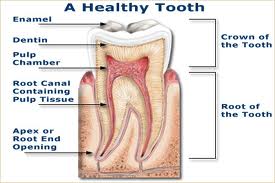It’s more important than you might think.
While overall oral health care for adults and children has improved, tooth decay continues to be the most common chronic disease among children. It can have serious social and health consequences when untreated and, in rare cases, can be fatal.
“The children with the highest need are the poor,” said [Dr. Martee] Engel, a pediatric dentist for 20 years. “Their tooth decay occurs more rapidly and is more pervasive.”
A surgeon general report in 2000 called the problem a “silent epidemic.” It estimated that children lose more than 51 million school hours because of toothaches. Children whose families are below the federal poverty line suffer 12 times more restricted activity and loss of school hours than other children, the report said.
Texas has done a better job than most states in improving access to dental care during the past decade, according to a study by the Pew Center.
Texas was one of nine states to receive a B for meeting national benchmarks.
In 2007, the state added $258 million to Medicaid to increase dental reimbursement rates on average by 50 percent, which has increased dentist participation.
The action was part of a settlement of a class-action lawsuit.
But even with more access through Medicaid and the Children’s Health Insurance Program, use of benefits remains low. Only 60 percent of the 3.3 million Texas children enrolled use their dental benefits, according to state officials. Figures in most other states are lower.
Health policy analyst Julia Paradise said more dentists, especially pediatric dentists, must participate in public insurance programs to fill the gaps. The need is greatest in rural areas and inner-city communities, she said.
“Coverage is not the same as access,” said Paradise, an analyst with the nonprofit Henry J. Kaiser Family Foundation. “It gets you to the door, but the door has to open.”
The story cites the case of Deamonte Driver, a 12-year-old Maryland boy who died from a brain infection that started out as simple tooth decay, which is caused by bacteria. I’m as surprised as you are to learn that Texas does well on that national benchmark, but given the way the Lege underfunded Medicaid in the 2011 session to help “balance” the budget, I will not be surprised to see that take a hit next year. Keep this story in mind when the subject comes up.

